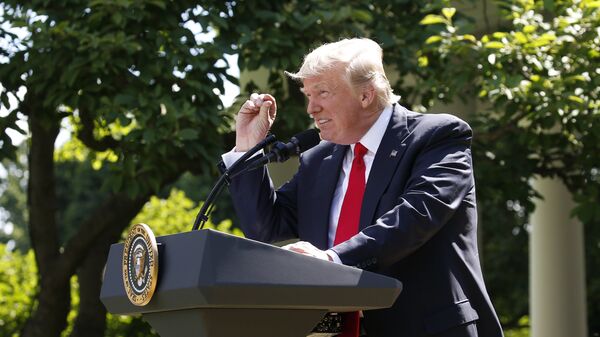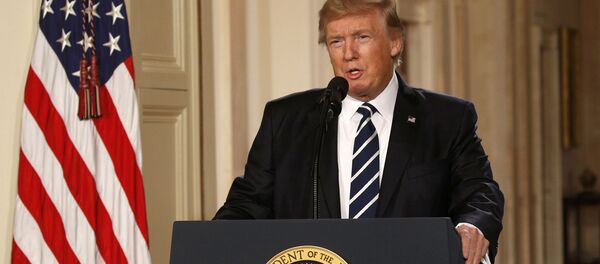The high-profile lawsuit claims that Trump is in violation of Article I, Section 9, Clause 8 of the US Constitution, the so-called Emoluments Clause. The Clause says that no government officials may "accept of any present, emolument [compensation], office, or title, of any kind whatever, from any king, prince, or foreign state" without Congressional approval.
The attorneys general of the state and the District, both Democrats, filed the lawsuit on June 12. "Each President, regardless of temperament or ideology, has sought, in his own way, to honor that solemn vow [to defend the Constitution]," the lawsuit read.
"Yet fundamental to a President's fidelity to that oath is the Constitution's demand that the President, as the highest officeholder in the land, disentangle his private finances from those of domestic and foreign powers. Never before has a President acted with such disregard for this constitutional prescription."
"Irrespective of whether such [foreign] benefits [to Trump-owned businesses] affected the President's decision-making or shift his foreign or domestic policy, uncertainty about whether the President is acting in the best interests of the American people, or rather for his own ends or personal enrichment, inflicts lasting harm on our democracy."
Constitutional scholars debate whether or not the Emoluments Clause applies to the president, or to businesses owned by him. The Constitution typically explicitly names the president and vice president when parts of the Constitution refer to them, with clauses generally referring to government officials not always applying. Presidents often accept gifts from foreign leaders, of course, although they traditionally seek Congressional permission to keep the present.
Trump already faces a similar lawsuit brought in January by plaintiffs that include an ethics group, a restaurant group and a hotel events booker. They claimed that Trump was violating the Emoluments Clause by maintaining ownership of his fleet of businesses. Trump ceded day-to-day control of his empire to his sons, but he still owns the Trump Organization.
On Friday, the US Department of Justice claimed that those plaintiffs lacked the legal standing to sue because they were unable to allege specific harm to the president's integrity brought on by foreign revenue to his conglomerate.
In March, DC attorney general Karl Racine told Reuters that the District had suffered because it had subsidized the construction of Trump-owned hotels that are now impacted by foreign payments and commerce.




